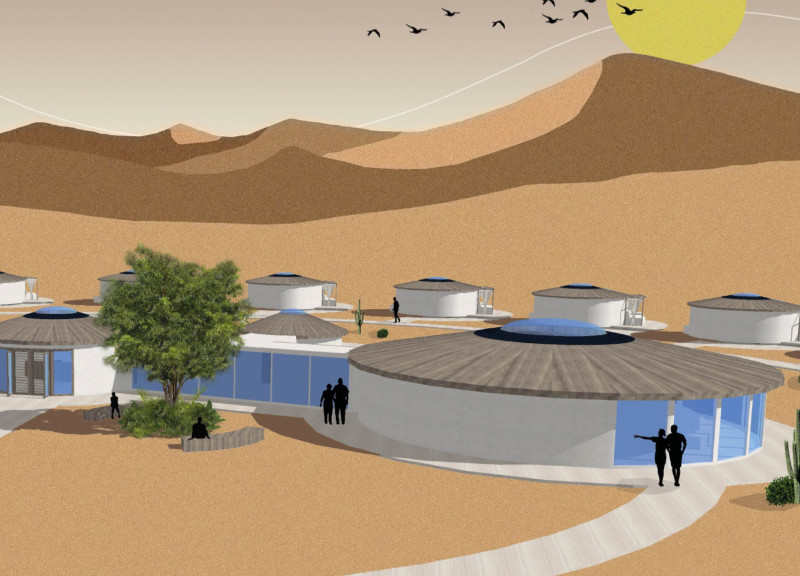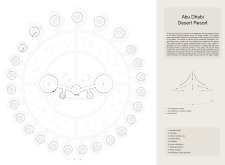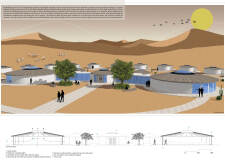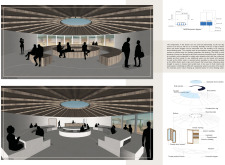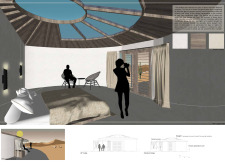5 key facts about this project
The Abu Dhabi Desert Resort is an architectural response to the unique environment of the desert. It consists of several roundhouses designed to provide shelter and comfort for visitors. These structures reflect a concept that connects modern living with traditional elements. With a focus on sustainability, the design draws inspiration from the form and function of Mongolian yurts, enabling a harmonious relationship with the surrounding landscape.
Design Concept
The roundhouses utilize a circular shape that enhances structural stability. This design choice allows for increased air circulation and effective temperature control. The simplicity of the form reduces material use while also maximizing interior space for guests. The concept prioritizes functionality, creating an efficient and comfortable environment in a challenging climate.
Materials
Materials chosen for the resort emphasize energy efficiency and durability. Reflective glass is featured in the double doors to minimize heat entry, allowing for expansive views without compromising guest comfort. Insulated panels in both walls and roofs help maintain a pleasant internal atmosphere by regulating temperature, supporting the overall sustainability goals of the project.
Sustainability Measures
Sustainable practices are evident throughout the design. Solar panels are incorporated to provide a renewable energy source, which is essential in a resource-limited desert setting. The resort also features an Atmospheric Water Generator that collects moisture from the air, addressing the need for drinking water in an area where it is scarce. These measures allow the resort to function more independently and responsibly.
User Experience
The layout supports easy movement and enhances the overall guest experience. Outdoor terraces complement the indoor spaces, providing areas for relaxation while connecting visitors with the desert. These shaded zones encourage enjoyment of the natural environment, allowing guests to appreciate the landscape during their stay. The design thoughtfully considers comfort and accessibility, contributing to a pleasant atmosphere during all seasons.


